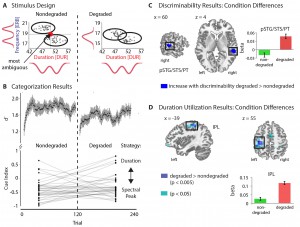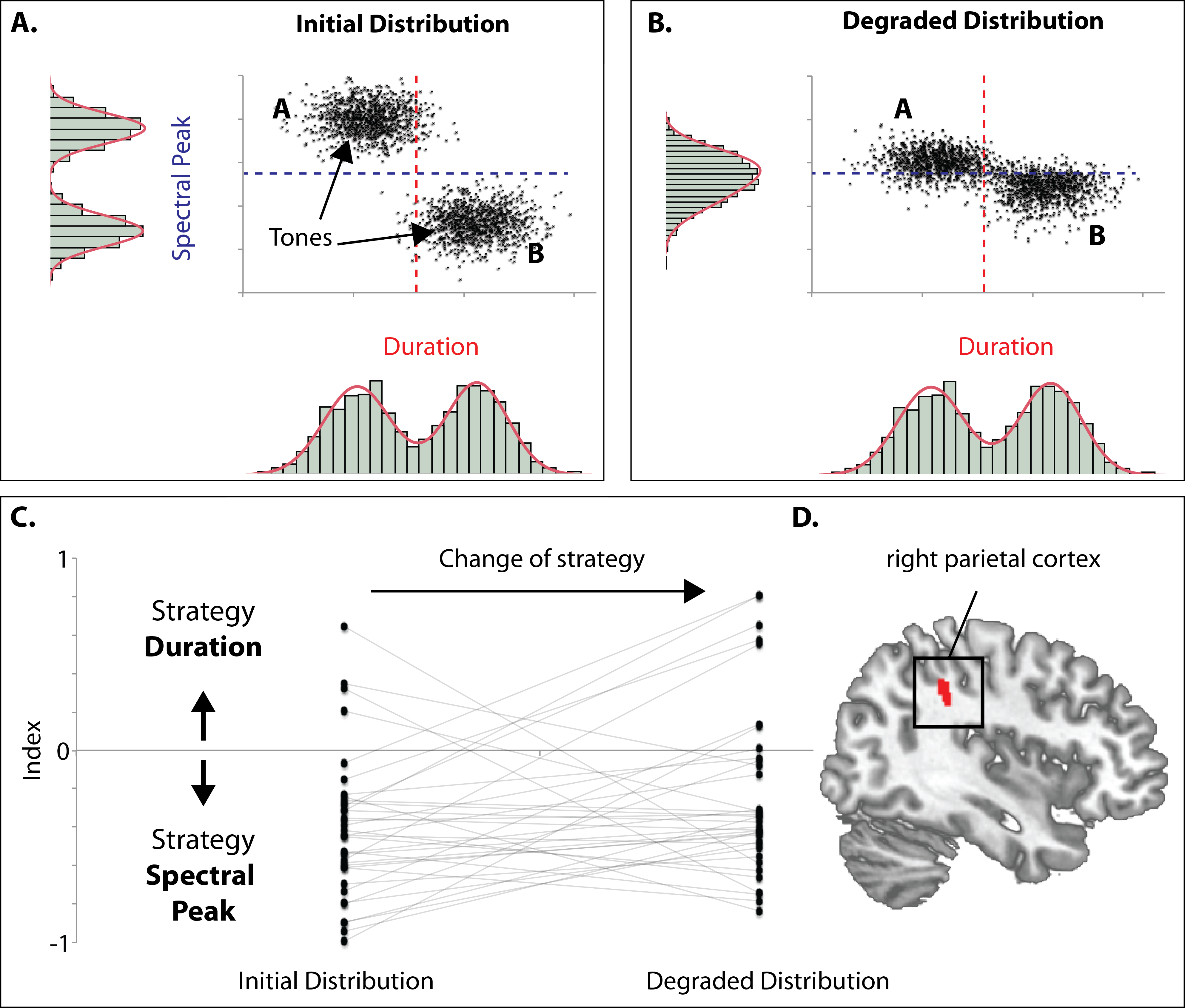Congratulations to Obleser lab alumnus Mathias Scharinger who this week published our joint work on simultaneous fMRI–EEG in Frontiers in Human Neuroscience!
Simultaneous EEG-fMRI brain signatures of auditory cue utilization
by Scharinger, Herrmann, Nierhaus, & Obleser
See abstract
Optimal utilization of acoustic cues during auditory categorization is a vital skill, particularly when informative cues become occluded or degraded. Consequently, the acoustic environment requires flexible choosing and switching amongst available cues. The present study targets the brain functions underlying such changes in cue utilization. Participants performed a categorization task with immediate feedback on acoustic stimuli from two categories that varied in duration and spectral properties, while we simultaneously recorded Blood Oxygenation Level Dependent (BOLD) responses in fMRI and electroencephalograms (EEGs). In the first half of the experiment, categories could be best discriminated by spectral properties. Halfway through the experiment, spectral degradation rendered the stimulus duration the more informative cue. Behaviorally, degradation decreased the likelihood of utilizing spectral cues. Spectrally degrading the acoustic signal led to increased alpha power compared to nondegraded stimuli. The EEG-informed fMRI analyses revealed that alpha power correlated with BOLD changes in inferior parietal cortex and right posterior superior temporal gyrus (including planum temporale). In both areas, spectral degradation led to a weaker coupling of BOLD response to behavioral utilization of the spectral cue. These data provide converging evidence from behavioral modeling, electrophysiology, and hemodynamics that (a) increased alpha power mediates the inhibition of uninformative (here spectral) stimulus features, and that (b) the parietal attention network supports optimal cue utilization in auditory categorization. The results highlight the complex cortical processing of auditory categorization under realistic listening challenges.
References
- Scharinger M1, Herrmann B1, Nierhaus T2, Obleser J1. Simultaneous EEG-fMRI brain signatures of auditory cue utilization. Front Neurosci. 2014 Jun 4;8:137. PMID: 24926232. [Open with Read]
Optimal utilization of acoustic cues during auditory categorization is a vital skill, particularly when informative cues become occluded or degraded. Consequently, the acoustic environment requires fl […]


